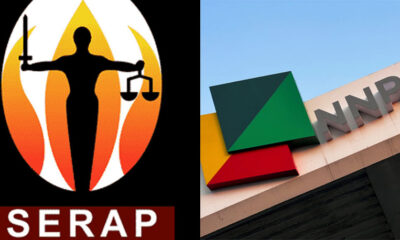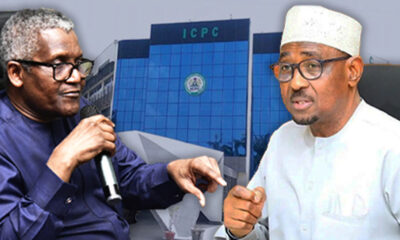News
NNPCL, Dangote, others shift oil industry tussle to Senate panel
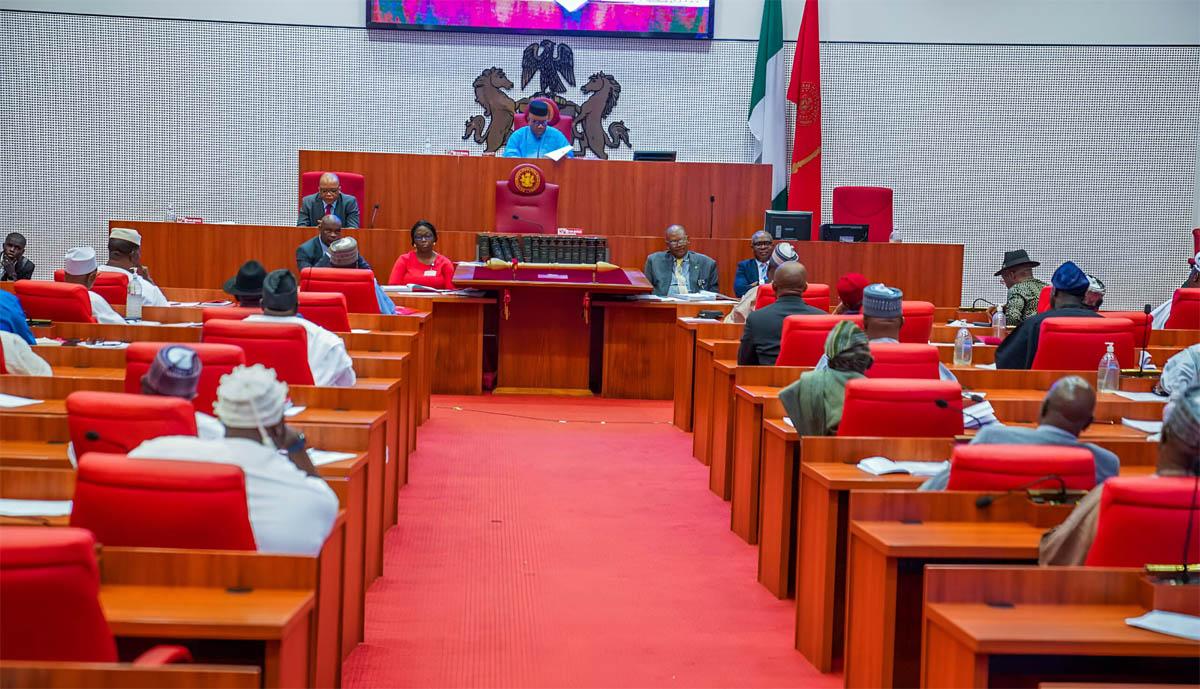
NNPCL, Dangote, others shift oil industry tussle to Senate panel
Major stakeholders in Nigeria’s oil and gas industry on Wednesday vowed to speak up on the dirty deals, regulatory breaches and other malpractices in the sector that had defied solutions over years as the Senate opened another round of probe.
They demanded that the investigation should be conducted on live television broadcasts so that Nigerians would hear and know the truth about the happenings in the industry.
The stakeholders spoke during an interactive session with the Senate Ad-hoc Committee investigating “Alleged Economic Sabotage in the Nigerian Petroleum Industry”, particularly the importation of adulterated and substandard products into the country.
The committee, which is chaired by the Majority Leader of the Senate, Sen. Opeyemi Bamidele (APC, Ekiti-Central), will begin its full public hearing on September 10.
At a pre-hearing interactive session, it called on Wednesday, major stakeholders sought a transparent investigation to be conducted on live broadcast so that Nigerians would be well aware of the “misinformation” about the operations of the industry.
Among others, the probe will “seek to identify and hold accountable all parties involved in the importation and distribution of the adulterated petroleum products, especially Premium Motor Spirit and Automotive Gas Oil and such other acts that are detrimental to the operations of the petroleum industry.”
Bamidele, in an opening remark, said, “This includes suppliers, importers, regulatory bodies, and any other entity that may have contributed to lapses in the petroleum industry.
“We will conduct a thorough review of current regulatory frameworks and procedures to identify deficiencies and recommend necessary reforms to prevent such occurrences in the future.”
The Minister of State Petroleum (Oil), Sen. Heineken Lokpobiri; the Group Chief Executive Officer of the Nigerian National Petroleum Company Limited (NNPCL); Mr Mele Kyari; the MD of the Nigerian Midstream & Downstream Petroleum Regulatory Commission (NMDPRA), Mr Farouk Ahmed; the MD of the Nigerian Upstream Petroleum Regulatory Commission (NUPRC), Mr Gbenga Kololafe; Depot and Petroleum Products Marketers Association (DAPMAN); Independent Marketers Association of Nigeria (IPMAN); Dangote Refinery; and modular refiners, addressed the panel.
READ ALSO:
- Kano: Dethroned Emir Bayero chief of staff pays allegiance to Emir Sanusi
- NYSC Akwa Ibom coordinator, driver declared missing on Onitsha-Owerri highway
- Protest: Niger senator calls for emergency summit of Northern leaders
It was a session where many of the stakeholders opposed the Dangote refinery, as speakers warned against the consequences of what they considered to be an emerging monopoly in the industry.
Lokpobiri, for example, promised to cooperate with the panel by supplying all the information to help it unearth the truth.
“We will fully cooperate and supply all the relevant information to address all the misinformation.
I will suggest that this investigation should be conducted on live television”, he stated.
Lokpobiri, who denied claims that the government was frustrating local investors, added, “We are also committed to supporting the Dangote refinery and modular refineries.”
Kyari, who spoke in the same vein, complained that he had been the target of all forms of attacks, including being called a criminal, and a thief.
He said, “We are faithful, loyal, and committed to the development of this country,” adding that “We are not criminals and we are not thieves.”
Kyari made a reference to the row between regulatory agencies and the Dangote refinery over the latter’s allegation that its $ 19 billion investment was being frustrated, saying, “We have done nothing to sabotage any domestic refinery. But, there is a law that guides what we do.
“The law says that for crude oil, there must be a willing buyer and a willing seller. Go and check the Petroleum Industry Act, it is there.
Although Kyari admitted that there could be adulterated products in the country, he insisted that NNPCL was not to blame as the company did not man the borders or control smuggling, which he said was the role of the Nigeria Customs Service and security agencies.
“There are things we know that we won’t say, but we will say them during the public hearing. Let the public hearing be done on live broadcast,” he told the session.
On adulterated products, Kyari said, “NNPCL is not and cannot be responsible for the importation of substandard products. But, we know that smuggling of all sorts takes place, which is not caused by NNPCL.”
According to Kyari, vandalism of oil installations and product theft remain the biggest threats to the industry that need urgent solutions, or else serious investors will not risk their money.
READ ALSO:
- 864 civil servants receiving multiple salaries in Taraba exposed
- Nigeria’s D’Tigress bow to US 88-74, exit Olympics
- Senate probes $1.5bn Port Harcourt refinery rehabilitation funding
The representatives of DAPMAN, IPMAN and other local operators called for an operating environment that would be fair to all, including existing investors and new entrants like the Dangote refinery, as against handing over the industry to a monopoly.
However, the Group Strategy Officer, Dangote Refinery, Mr Aliyu Suleiman, expressed worries that the company did not get the expected support and backing from the government and regulators.
He raised three issues, “We would like to basically have three questions that we think we should look at, ask the committee, and also ask Nigerians.
“The first question is, do local refineries deserve protection from the government? The second question is, should Nigeria protect its infant industries in order to improve investment? And then the third question is, should local refineries have preferential access to Nigeria?.”
Aliyu went on, “Those really are the questions that we want this committee to consider. On the first one, as I have said, we produced five million tons of products, but of those 5 million tonnes, about 90% of them had to be exported. While at the same time, the products we were producing had been imported into Nigeria.
“We find ourselves competing against Russian products that were produced, that have been produced with oil that is valued at $60. We all know that because of the cap that has been put on Russian oil, the value of Russian oil today in the market is $60.
“And that’s what Russia is using to produce their products, and those products are being sent in large quantities into Africa to compete with products that are produced in refineries that buy proof at $90.
“We don’t think this will be a fair competitive environment and I think on that, even on that when you have such unfair competition, it is normal to put protective measures in place.”
He informed the panel that all the company had asked for was for the regulatory environment to support it, considering its huge investment in excess of $19 billion as part of the efforts to solve the domestic product supply challenges.
Meanwhile, the Minister of Finance and Coordinating Minister of the Economy, Mr Wale Edun, confirmed that the government had yet to meet the 2024 budget’s crude oil target, though he gave assurances that everything was being done to achieve it.
Addressing the panel, the minister said while the government set a daily crude production target of 1.87 million barrels for the budget, it had so far achieved 1.6mbpd.
He stated that the government planned to surpass the budget’s target and achieve 2mbpd.
On oil prices, the minister said, “Outlook for oil prices is positive and we expect prices to remain stable.”
NNPCL, Dangote, others shift oil industry tussle to Senate panel
News
Yoruba Muslim Group Dismisses Viral Ramadan Date Claim, Reaffirms Sultan of Sokoto’s Authority
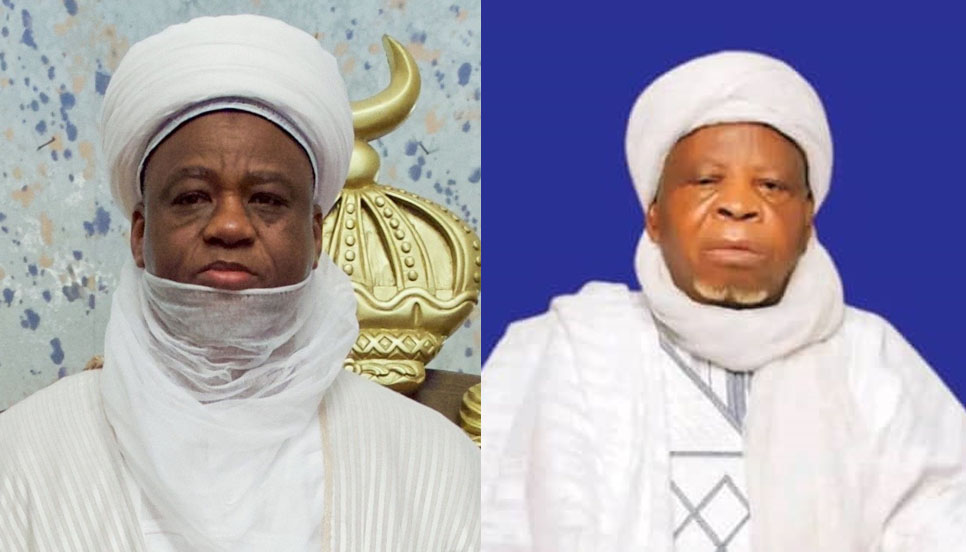
Yoruba Muslim Group Dismisses Viral Ramadan Date Claim, Reaffirms Sultan of Sokoto’s Authority
A Yoruba Muslim group, Concerned Indigenous Yoruba Muslims, has dismissed as false, misleading, and divisive a viral social media report alleging that the Chief Imam of Ibadanland and the League of Imams in Yorubaland rejected the authority of the Sultan of Sokoto in determining the commencement of Ramadan in South-West Nigeria.
The report, which circulated online ahead of Ramadan 1447AH, claimed that Yoruba Muslim leaders had resolved to disengage from the Sultan’s traditional role of announcing moon sighting for the fasting period and instead align with indigenous religious structures. The group, however, said the claim was entirely fabricated and designed to sow discord within the Muslim community.
In a statement issued on Saturday, February 21, 2026 — the fourth day of Ramadan, and signed by public affairs analyst Nasrudeen Abbas, the group said the comments attributed to the Chief Imam of Ibadan, reportedly over 90 years old, could not have emanated from him. It described the publication as a calculated attempt to create unnecessary religious tension and misrepresent the position of Yoruba Muslims.
The group reaffirmed that Islamic affairs in Nigeria operate under established leadership structures, particularly the Nigerian Supreme Council for Islamic Affairs (NSCIA), which is headed by the Sultan of Sokoto, Muhammad Sa’ad Abubakar, as President-General. It explained that the NSCIA structure includes the President of the Muslim Ummah of South West Nigeria (MUSWEN) as Deputy President-General (South), the Shehu of Borno as Deputy President-General (North), alongside other national officers.
READ ALSO:
- FCT Council polls: APC Wins Four Chairmanship Seats as PDP Takes Gwagwalada
- Dangote Opens Refinery Investment to Nigerians With Public Share Sale Plans
- SERAP Urges Tinubu to Repeal ‘Unlawful’ Mass Surveillance Regulations
According to the group, any attempt to distance Yoruba Muslims from this nationally recognised structure threatens the unity of the Muslim Ummah in Nigeria and contradicts Islamic principles that emphasise cohesion, collective leadership, and obedience to constituted authority.
The group also faulted claims that the Sultan’s position is merely a traditional title limited to Sokoto State. It stressed that the Sultan’s authority in Islamic matters is rooted in scholarship and the historical caliphate system, noting that emirs in Northern Nigeria often combine traditional authority with religious leadership. As an example, it cited Muhammadu Sanusi II, who regularly delivers Friday sermons and performs Islamic rites.
It further explained that in Yorubaland, traditional rulers generally do not head religious affairs, except in rare cases. The group referenced the late Awujale of Ijebu Land, who once served as President-General of the Ogun State Muslim Council, stressing that such roles remain exceptions rather than the norm.
The statement also recalled the position of the late Kazeem Yayi Akorede, former President-General of the League of Imams and Alfas in the South West. According to the group, Sheikh Akorede initially questioned the Sultan’s leadership role but later accepted it after clarifications that the position was based on Islamic scholarship and caliphate leadership, not mere traditional kingship. It added that until his death, he consistently aligned with the Sultan’s announcements on the commencement and termination of Ramadan.
Describing the viral publication as unethical, the group criticised claims that Yoruba Muslims are not religiously bound to the Sultan’s authority and that religious leadership should go beyond duties such as moon sighting announcements. It alleged that such narratives were politically motivated and aimed at advancing a separatist agenda under the guise of religious autonomy.
The group warned that politicising religious matters could undermine religious harmony and national unity, urging those behind the report to desist from actions capable of creating discord among Muslims across the country. It concluded by stressing that the unity of the Muslim Ummah in Nigeria remains paramount and must not be compromised by what it described as sectarian or politically engineered narratives.
Yoruba Muslim Group Dismisses Viral Ramadan Date Claim, Reaffirms Sultan of Sokoto’s Authority
News
NNPC CEO Ojulari Receives Prestigious Energy Institute Fellowship in London
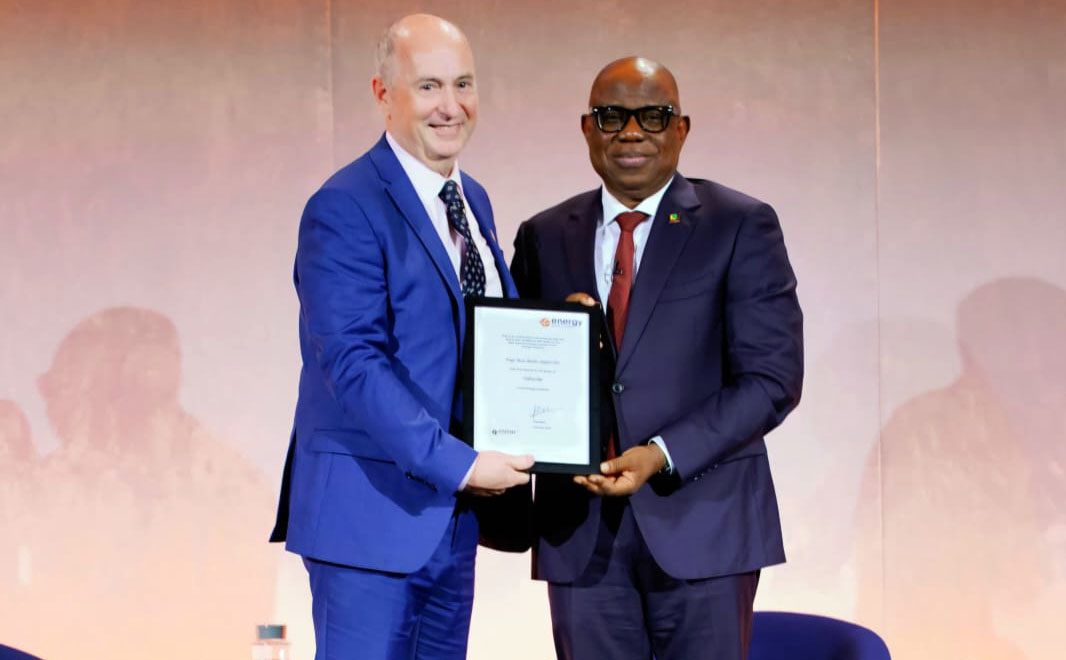
NNPC CEO Ojulari Receives Prestigious Energy Institute Fellowship in London
The Nigerian National Petroleum Company Limited (NNPC Ltd.) has earned international acclaim as its Group Chief Executive Officer, Engr. Bashir Bayo Ojulari, has been conferred with the Fellowship of the Energy Institute (FEI), United Kingdom — one of the highest honours in the global energy industry.
The Fellowship recognises senior energy leaders who have demonstrated sustained, high-impact contributions to the advancement of the energy sector. It was formally conferred on Ojulari during International Energy Week (IEW) in London, a leading platform for energy policy, finance, and industry leadership. (punchng.com)
The honour was presented by Andy Brown, President of the Energy Institute, who praised Ojulari’s transformative leadership of NNPC Ltd., highlighting his role in strengthening governance, embedding a performance-driven culture, and repositioning the company for long-term value creation.
Under his stewardship, NNPC Ltd. has implemented investor-focused reforms, enhanced operational excellence, and expanded strategic global partnerships, all contributing to increased confidence in Nigeria’s energy sector. The recognition reinforces NNPC’s ongoing transformation into a commercially driven, globally competitive, and transparent energy company.
READ ALSO:
- FCT Polls: CSO Situation Room Flags Late Voting, Vote Buying, Logistical Challenges
- ADC Defeats APC to Win First Polling Unit in FCT Area Council Election
- Trump Moves to Indefinitely Suspend Work Permits for Asylum Seekers
Significance for Nigeria and Africa
Experts note that the FEI Fellowship is not only a personal achievement for Ojulari but also a major institutional endorsement of NNPC Ltd.’s reform agenda. Being recognised at International Energy Week, which convenes policymakers, financiers, regulators, and industry leaders, positions the company at the centre of critical global energy discussions on sustainability, energy transition, and capital formation.
The award also signals growing international confidence in NNPC Ltd. and highlights Nigeria’s strategic role in Africa’s energy security and global energy transition ambitions. (vanguardngr.com)
Ojulari’s Leadership Achievements
Since assuming office, Engr. Ojulari has overseen multiple strategic reforms at NNPC Ltd., including:
- Driving governance and operational reforms to boost accountability.
- Expanding strategic partnerships and investor-focused initiatives.
- Enhancing execution efficiency across the company’s subsidiaries.
- Positioning NNPC Ltd. as a credible, investment-ready energy enterprise.
These efforts have not only improved the company’s profitability and performance but also strengthened Nigeria’s energy security and market competitiveness. (punchng.com)
Ojulari described the Fellowship as a reflection of collective effort within NNPC and reiterated his commitment to sustainable value creation, global best practices, and energy sector innovation.
NNPC CEO Ojulari Receives Prestigious Energy Institute Fellowship in London
News
FCT Polls: CSO Situation Room Flags Late Voting, Vote Buying, Logistical Challenges
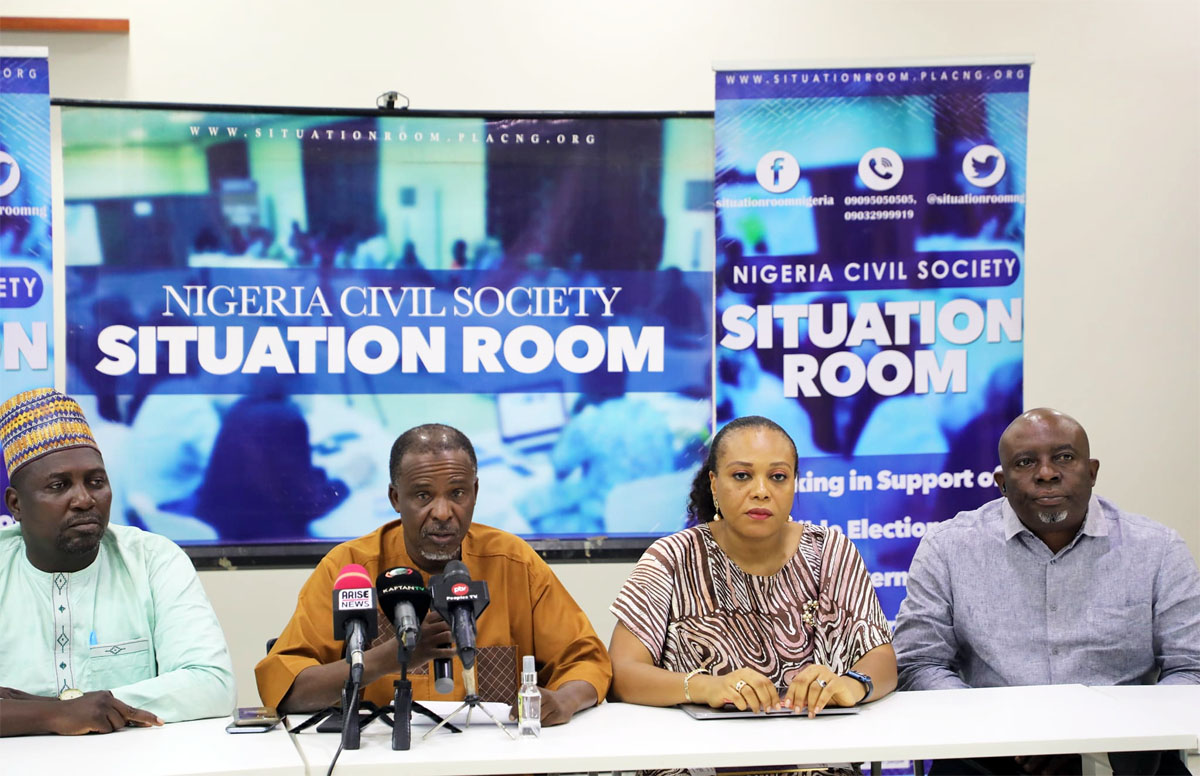
FCT Polls: CSO Situation Room Flags Late Voting, Vote Buying, Logistical Challenges
The Nigeria Civil Society Situation Room has raised concerns over multiple irregularities in the ongoing Federal Capital Territory (FCT) Area Council Elections, citing late polling unit openings, reports of vote buying, and logistical challenges that could affect voter participation.
According to the Situation Room, a coalition of over 70 civil society organisations advocating for credible elections in Nigeria, many polling units opened late, with an average start time of 9:15 a.m., well after the official 8:30 a.m. schedule. Observers also noted low voter turnout in several areas, particularly in AMAC, although queues began forming later in Kuje, Kwali, Gwagwalada, and Abaji Area Councils.
Vote Buying Observed
The coalition reported instances of vote buying, with voters allegedly offered up to ₦10,000 in exchange for ballots in units such as PU008, PU056, PU057, and PU058 in Gidan Mangoro Ward, AMAC. While some of the transactions were open, others were conducted discreetly.
The Situation Room warned that such electoral malpractice undermines the integrity of the election and called on electoral officials, political parties, and security agencies to intervene and prevent further incidents.
READ ALSO:
- ADC Defeats APC to Win First Polling Unit in FCT Area Council Election
- Trump Moves to Indefinitely Suspend Work Permits for Asylum Seekers
- Peller Escapes Generator Fire at Lagos Home, Recalls Earlier Lekki–Epe Scare
Logistical and Accessibility Issues
Observers noted that some voters struggled to locate their polling units after last-minute changes communicated by INEC via text messages. The Bimodal Voter Accreditation System (BVAS) generally performed efficiently, with a one-minute average accreditation time, though malfunctions were reported in a few units including Gwako Town Primary Schools II & IV and PU143, Gwagwalada.
The Situation Room also highlighted accessibility challenges for voters with disabilities, noting that braille ballot guides, magnifying glasses, and other assistive materials were largely absent, even in designated disability communities such as Karimajiji and PU052, Wuse.
Security and Election Conduct
Security personnel, including officers from the Nigeria Police, Civil Defence, Immigration Service, and Fire Service, were present in significant numbers and generally maintained order and professionalism.
Isolated incidents of intimidation and harassment were reported in locations such as Grade 1 Area Court, Rubochi (Kuje); Naharati Sabo School II, Rimba/Ebagi; and PU3, UNG Liman/UNGWAR LIMAN 1, Abaji Central, but security agents swiftly resolved these situations.
Call for Calm and Integrity
The Situation Room commended the INEC FCT Help Desk for promptly addressing reported issues and called on all stakeholders to maintain calm, resist vote buying, and ensure that the will of the people is respected as the polls continue and results are collated.
The report was jointly signed by Mma Odi and Celestine Odo, co-conveners of the coalition.
FCT Polls: CSO Situation Room Flags Late Voting, Vote Buying, Logistical Challenges
-

 Politics2 days ago
Politics2 days agoPeter Obi Launches ‘Village Boys Movement’ to Rival Tinubu’s City Boys Ahead of 2027
-

 Education19 hours ago
Education19 hours agoUTME: JAMB Clarifies Position on Hijab During Biometric Capture
-

 News2 days ago
News2 days agoPolice to Arrest TikToker Mirabel After She Recants False Rape Claim
-

 Business7 hours ago
Business7 hours agoDangote Opens Refinery Investment to Nigerians With Public Share Sale Plans
-

 International2 days ago
International2 days agoEpstein, Ex-Israeli PM Named in Alleged Profiteering From Boko Haram Crisis
-
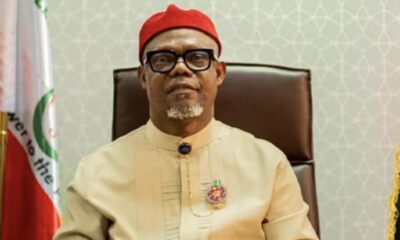
 Politics3 days ago
Politics3 days agoUpdated: Rivers Senator Mpigi Barinada dies at 64
-

 Education2 days ago
Education2 days agoOgun Gov Rewards Nigeria’s Best Primary School Teacher with Car, Bungalow
-

 Entertainment2 days ago
Entertainment2 days agoTacha Condemns False Rape Allegations After Mirabel Admits Fabrication





